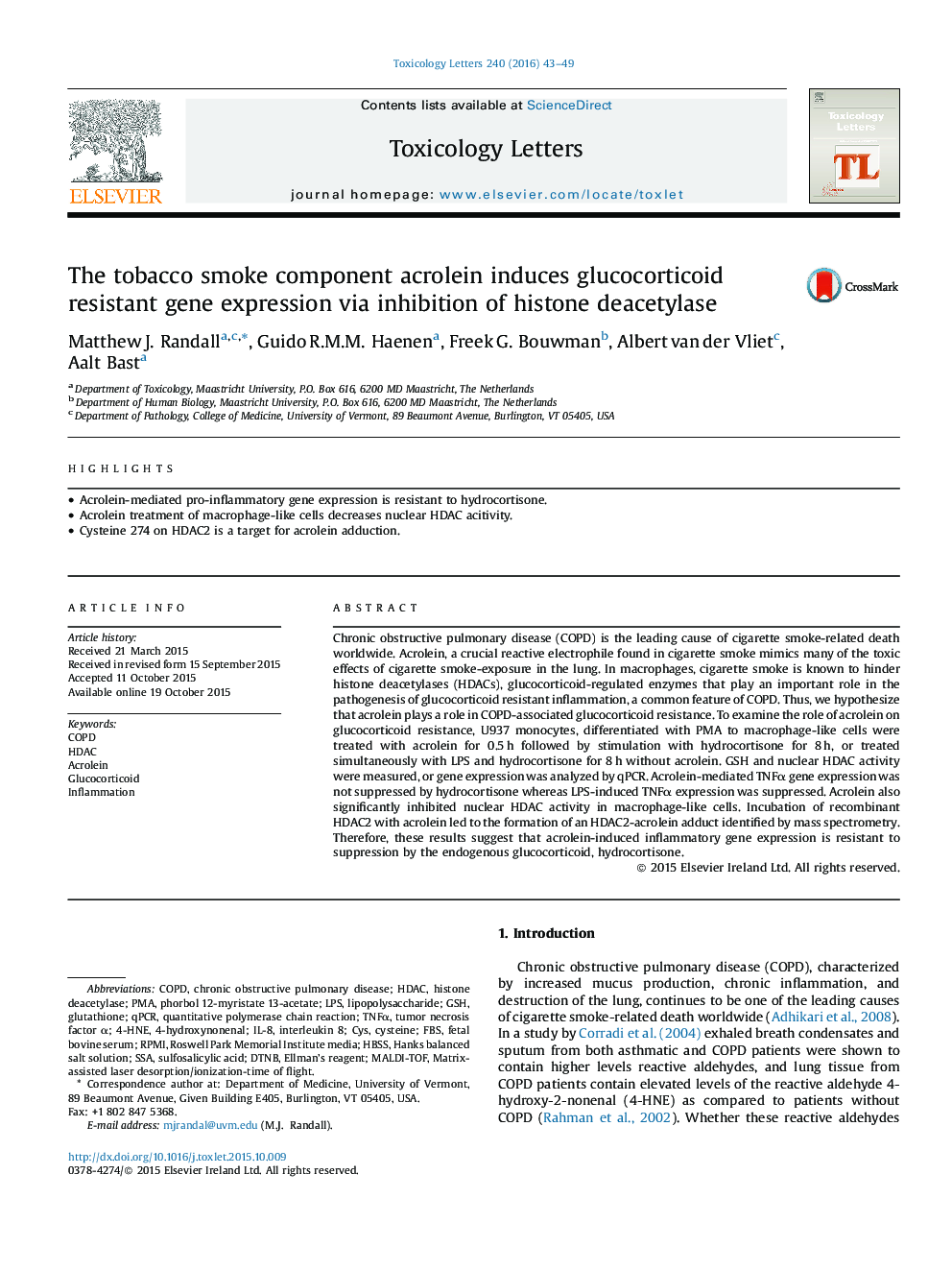| Article ID | Journal | Published Year | Pages | File Type |
|---|---|---|---|---|
| 2598590 | Toxicology Letters | 2016 | 7 Pages |
•Acrolein-mediated pro-inflammatory gene expression is resistant to hydrocortisone.•Acrolein treatment of macrophage-like cells decreases nuclear HDAC acitivity.•Cysteine 274 on HDAC2 is a target for acrolein adduction.
Chronic obstructive pulmonary disease (COPD) is the leading cause of cigarette smoke-related death worldwide. Acrolein, a crucial reactive electrophile found in cigarette smoke mimics many of the toxic effects of cigarette smoke-exposure in the lung. In macrophages, cigarette smoke is known to hinder histone deacetylases (HDACs), glucocorticoid-regulated enzymes that play an important role in the pathogenesis of glucocorticoid resistant inflammation, a common feature of COPD. Thus, we hypothesize that acrolein plays a role in COPD-associated glucocorticoid resistance. To examine the role of acrolein on glucocorticoid resistance, U937 monocytes, differentiated with PMA to macrophage-like cells were treated with acrolein for 0.5 h followed by stimulation with hydrocortisone for 8 h, or treated simultaneously with LPS and hydrocortisone for 8 h without acrolein. GSH and nuclear HDAC activity were measured, or gene expression was analyzed by qPCR. Acrolein-mediated TNFα gene expression was not suppressed by hydrocortisone whereas LPS-induced TNFα expression was suppressed. Acrolein also significantly inhibited nuclear HDAC activity in macrophage-like cells. Incubation of recombinant HDAC2 with acrolein led to the formation of an HDAC2-acrolein adduct identified by mass spectrometry. Therefore, these results suggest that acrolein-induced inflammatory gene expression is resistant to suppression by the endogenous glucocorticoid, hydrocortisone.
